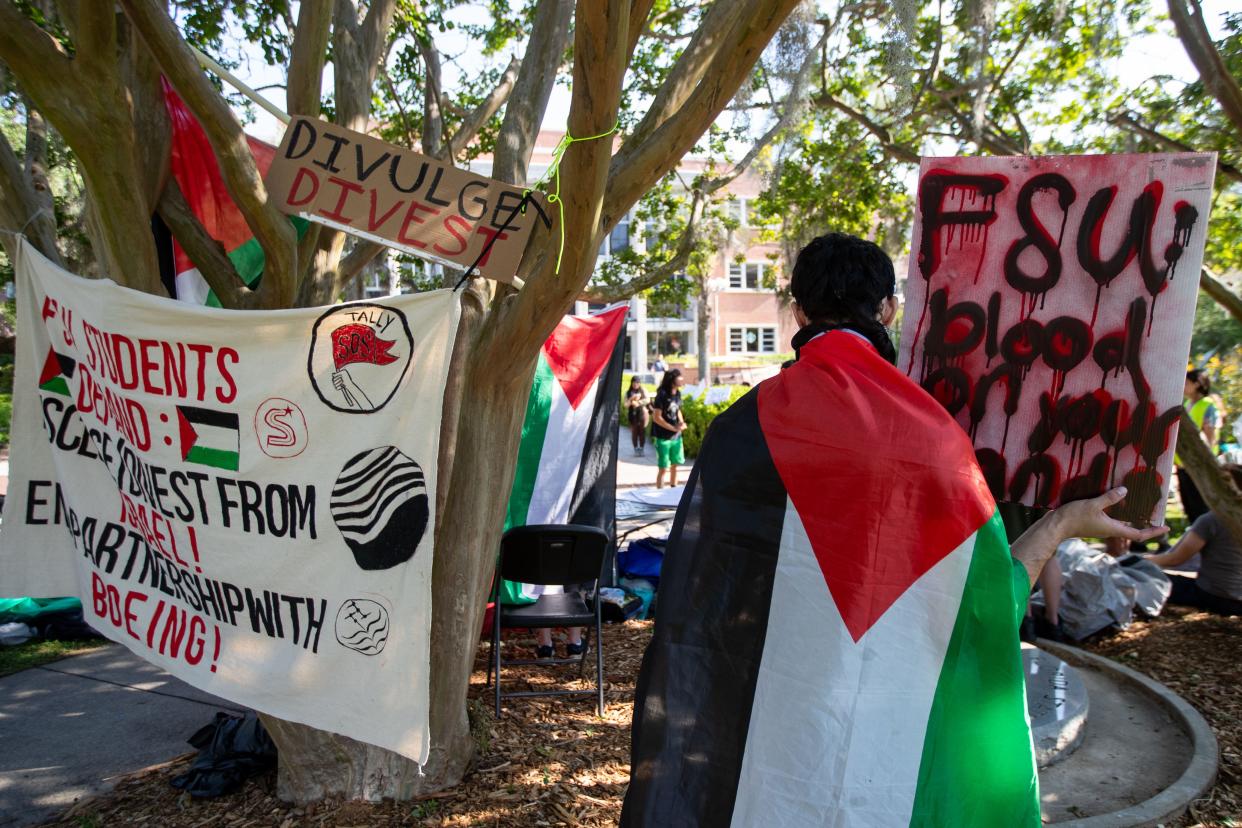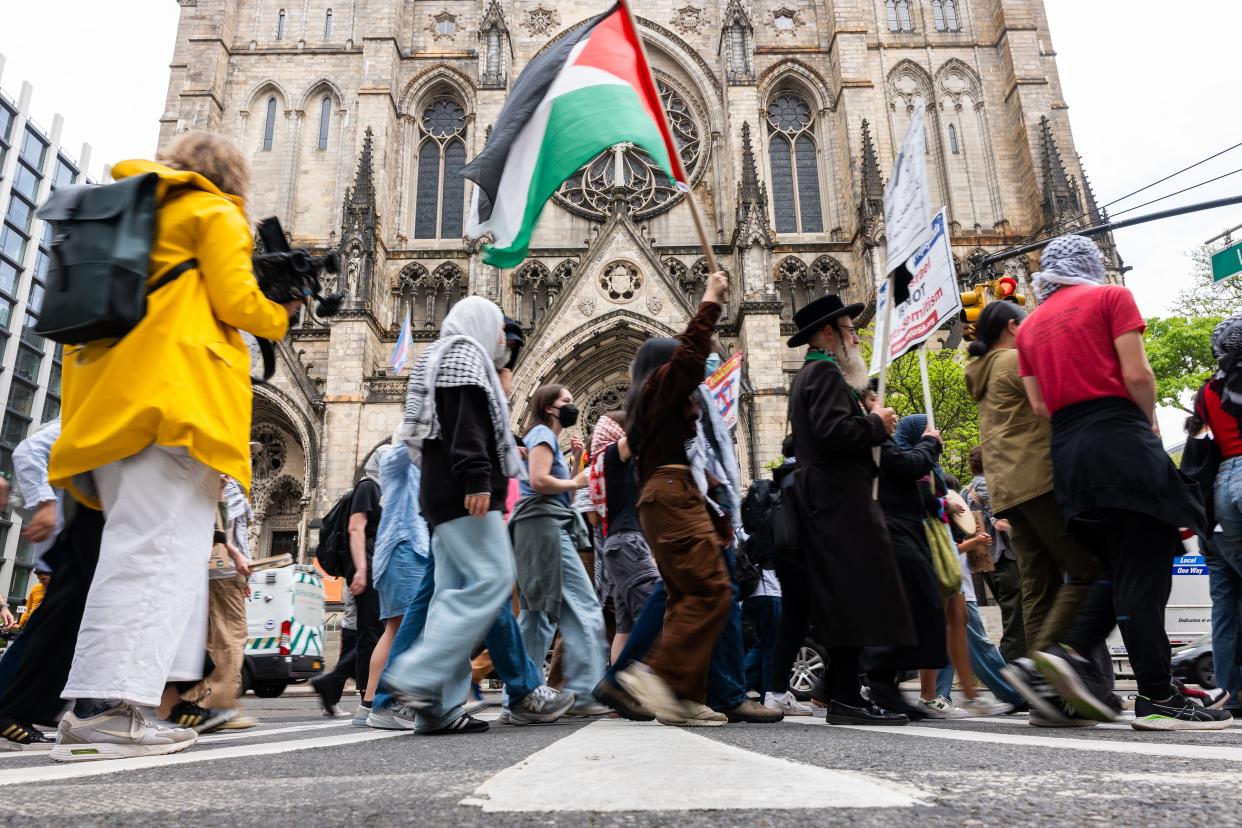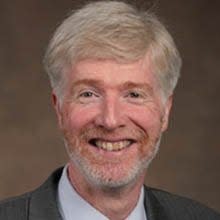Unpacking some of the complexities of peaceful assembly
As an increasing number of students across college and university campuses in Florida and around the country are expressing themselves and engaging in varying degrees of protest one thing is abundantly clear – our free speech rights aren’t absolute, nor do they insulate anyone from criminal prosecution if corresponding conduct reaches that level.
As most are aware, the First Amendment of the Constitution of the United States is unique throughout the world insofar as the tremendous value and emphasis placed on protecting such rights from governmental encroachment.

The Founders embraced freedom of speech and peaceful assembly among other rights as core elements essential to sustaining our federal constitutional republic. No other constitution in any other nation affords greater protection insofar as free speech and peaceful assembly.
As a practical matter, separate and apart from libel and slander which essentially are civil matters involving the truth of the matters asserted, time, place and manner restrictions may apply. In other words, free speech and peaceful assembly rights don’t necessarily allow those attempting to exercise them to do so at the time or place of their choosing – designated areas and reasonable advance approval requirements may apply.
Apart from time, place and manner restrictions then there’s the content of such speech. First Amendment protections may encompass speech and expression which some reasonably might perceive to be deeply offensive so long as such speech doesn’t rise to the level of inciting imminent lawlessness, an exceedingly high legal threshold for which a bright line can be elusive.
While Congress and state legislatures consider legislation from time to time to address concerns, like for instance attempting to define antisemitism to prohibit it, it’s not unreasonable to conclude that rigid albeit well-intentioned definitions could make criticism of Israeli government policy actionable as antisemitic thereby suppressing what might otherwise be regarded as fundamental discourse.
Beyond legislation, different protocols may apply on various college and university campuses, also depending upon whether a public or private institution.

The intent of this op-ed isn’t to compare colleges and universities in Florida or around the United States insofar as which arguably may have responded more reasonably or effectively, rather to highlight some of the complexities at issue generally and also reference a resource that’s not widely known which can help further inform officials, students and civil society alike.
As is often the case, opportunity travels with these challenges -- cause for college and university leadership in Florida and around the country to consider the possibility of incorporating peaceful assembly primers of sorts into routine student orientations at the outset of every term in recognition of these inherent complexities regardless of any given issue.
Similarly, these primers could instill that effective advocacy is predicated upon respect and dignity, rather than vilifying those who may have decidedly different experiences and sensibilities.
In addition to providing basic constitutional analysis, such primers also could inform that the United States is among 173 nations to ratify the International Covenant on Civil and Political Rights (ICCPR) thus far, a treaty framework based on the Universal Declaration of Human Rights. And explain that the Supremacy Clause of the US Constitution accords ratified treaties essentially the weight of federal law.
Any such protest primers would be well-positioned to inform that this ultimately bipartisan treaty framework also offers recent and highly credible general comment involving peaceful assembly which may be useful to students and officials alike.

Mark Schlakman, Esq., FSU Center for the Advancement of Human Rights, and Of Counsel to Rambana & Ricci, P.L.L.C.
JOIN THE CONVERSATION
Send letters to the editor (up to 200 words) or Your Turn columns (about 500 words) to letters@tallahassee.com. Please include your address for verification purposes only, and if you send a Your Turn, also include a photo and 1-2 line bio of yourself. You can also submit anonymous Zing!s at Tallahassee.com/Zing. Submissions are published on a space-available basis. All submissions may be edited for content, clarity and length, and may also be published by any part of the USA TODAY NETWORK.
This article originally appeared on Tallahassee Democrat: Unpacking some of the complexities of peaceful assembly
